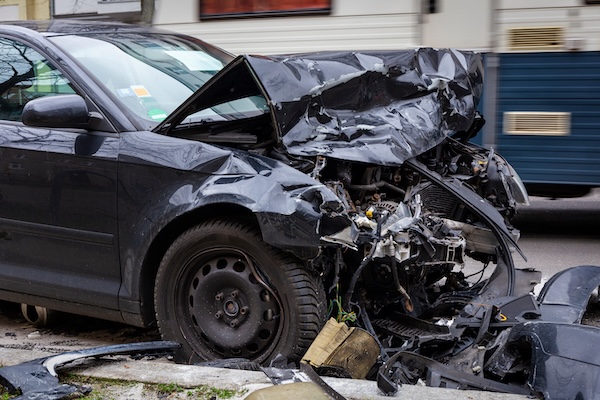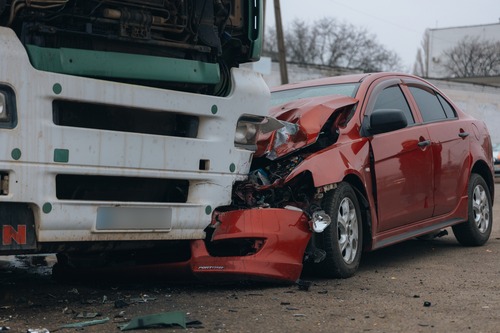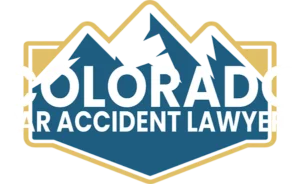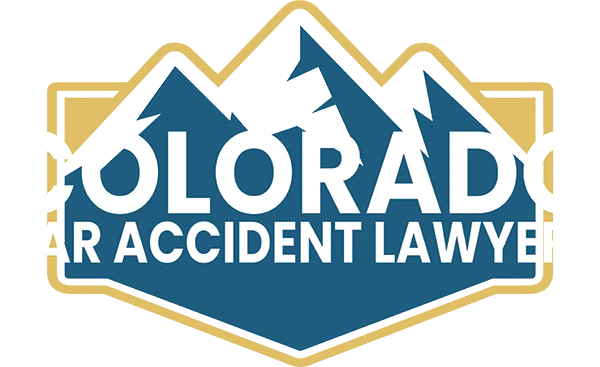Understanding Colorado’s Total Loss Threshold: What You Need to Know
What Is a Total Loss Threshold?
In the realm of auto insurance, a “total loss” refers to a situation where the cost of repairing a damaged vehicle exceeds its actual cash value (ACV). The total loss threshold determines when a vehicle is deemed beyond repair from an economic standpoint. Colorado uses a total loss formula (TLF) rather than a fixed percentage threshold like some other states. This formula considers the cost of repairs plus the vehicle’s salvage value. If this total exceeds the vehicle’s ACV, it’s declared a total loss.
For example:
- Repair Costs: $8,000
- Salvage Value: $2,000
- Actual Cash Value: $9,000
Since $8,000 (repair costs) + $2,000 (salvage value) = $10,000 (which exceeds the ACV), the vehicle is considered a total loss.
Colorado’s Total Loss Threshold and Your Insurance Claim
Colorado’s TLF approach is unique, and while it offers flexibility for insurers, it can complicate matters for drivers. A key challenge is determining the actual cash value (ACV) of your vehicle—a figure that depends on its age, condition, mileage, and market trends. Disagreements about ACV are common, which is why having an experienced car accident lawyer on your side can help ensure you’re treated fairly. Insurance companies often prioritize minimizing payouts. Without proper guidance, you might accept an undervalued settlement. A lawyer can negotiate with insurers to ensure your vehicle’s value is accurately assessed, maximizing your compensation.
What Happens When Your Vehicle Is Declared a Total Loss?
When your car is declared a total loss in Colorado, it means that repairing the vehicle is no longer deemed economically viable. This determination sets off a series of steps that will ultimately lead to a settlement offer from your insurance company. Understanding each stage of this process can help you navigate it effectively and ensure you receive a fair outcome. Here’s what happens:
Inspection and Valuation
The process begins with an inspection of your vehicle by the insurance company. They evaluate the extent of the damage and determine the estimated cost of repairs. This step is critical because repair costs are a key factor in deciding whether your vehicle meets the total loss formula (TLF) in Colorado. In addition to repair costs, the insurer will assess your vehicle’s salvage value, which is what the car might be worth if sold for parts or scrap.
The inspection must be thorough, and it’s a good idea to document the damage yourself before the inspection occurs. Take clear photos of all visible damage and make notes about any pre-existing issues that could affect the valuation. This documentation will serve as an important reference if disputes arise later.
Determination of Actual Cash Value (ACV)
Once the inspection is complete, the insurer calculates your vehicle’s actual cash value (ACV)—its market value before the accident occurred. The ACV takes into account various factors, including:
- The vehicle’s make, model, and year.
- Mileage and overall condition before the accident.
- Market trends and comparable sales in your area.
- Recent upgrades or modifications, such as new tires or a custom paint job.
Disputes often arise at this stage because insurers may undervalue the ACV by overlooking certain factors or using outdated data. For example, they might fail to consider your car’s excellent maintenance history or any recent investments you’ve made in repairs. If you disagree with the ACV calculation, you have the right to challenge it.
Settlement Offer
Once the insurer determines the ACV, they will subtract your deductible and any salvage value to calculate your payout. This settlement offer is intended to provide you with enough money to replace your vehicle with one of similar value. However, it’s vital to scrutinize the offer carefully. If the ACV or salvage value seems inaccurate or unfairly calculated, you don’t have to accept the first offer.
At this point, you can:
- Request a detailed breakdown of how the ACV and salvage value were determined.
- Present evidence supporting a higher ACV, such as receipts for recent repairs or listings for comparable vehicles in your area.
- Consult a car accident lawyer to negotiate on your behalf.
Why Working with a Car Accident Lawyer is Essential
Navigating a total loss claim is rarely straightforward, and for many drivers, it can feel like an uphill battle—especially if you’re still dealing with the physical, emotional, or financial aftermath of an accident. Insurance companies are skilled at protecting their bottom line, often prioritizing quick, low-cost settlements over fairness to claimants. Unfortunately, this can leave you without the compensation you need to fully recover or replace your vehicle. In such situations, partnering with an experienced car accident lawyer can make all the difference. Here’s why:
Negotiating Directly with Insurers
Insurance adjusters are trained negotiators who may downplay your claim, undervalue your vehicle, or apply the total loss formula (TLF) to your disadvantage. A car accident lawyer steps in as your advocate, leveling the playing field. They have the skills and experience to handle tough negotiations, pushing back against lowball offers and ensuring your claim is given the attention it deserves. Lawyers also understand the tactics insurers use to minimize payouts and know how to counter them effectively.
Ensuring Your Vehicle’s ACV Is Calculated Fairly
One of the most contentious aspects of a total loss claim is determining the actual cash value (ACV) of your vehicle. Insurers may base their calculations on incomplete or outdated data, leading to an undervalued settlement offer. A car accident lawyer will thoroughly review the insurer’s valuation process and ensure that all relevant factors—such as mileage, maintenance history, aftermarket modifications, and local market conditions—are taken into account. They can also gather evidence, such as recent sales of comparable vehicles, to support a higher valuation.
Advocating for Your Right to Retain the Vehicle
If your vehicle is declared a total loss but you’d like to keep it—for sentimental reasons or to repair it yourself—you may face additional hurdles. Insurers often reduce the settlement amount by the vehicle’s salvage value, which can feel like a penalty. A lawyer can negotiate the terms of retention, ensuring that you’re not shortchanged if you decide to keep your car. They can also guide you through the salvage title process, helping you understand any legal or financial implications of retaining the vehicle.
Recovering Additional Damages
In many cases, the financial impact of an accident extends far beyond the value of your vehicle. You may face medical bills, lost wages, and other expenses that aren’t addressed in a standard total loss claim. A car accident lawyer can help you pursue additional damages from the at-fault party, ensuring you’re compensated for all losses related to the accident. This comprehensive approach not only protects your financial stability but also holds negligent parties accountable for their actions.
Reducing Stress and Protecting Your Interests
Recovering from an accident is hard enough without the added stress of dealing with insurance companies and legal paperwork. By entrusting your case to a skilled car accident lawyer, you can focus on healing and rebuilding your life while they handle the heavy lifting. From gathering evidence to negotiating settlements, they take care of every detail, ensuring that your legal and financial interests are fully protected.
Why It’s Worth It
Many people hesitate to contact a lawyer, fearing that legal fees might cut into their settlement. However, most car accident lawyers work on a contingency fee basis, meaning they only get paid if you win your case. This arrangement ensures that their success is directly tied to maximizing your compensation. Additionally, the increased settlement amounts can often far outweigh the cost of their services.
Partnering with a car accident lawyer isn’t just about winning a better settlement—it’s about peace of mind. With their expertise, you can navigate the complexities of a total loss claim confidently, knowing that you have a dedicated advocate fighting for what you deserve.
Tips for Colorado Drivers Handling a Total Loss Claim
Dealing with a total loss claim can feel overwhelming, especially if you’re unfamiliar with the process. By taking a proactive approach and understanding your rights, you can position yourself for a fair and favorable outcome. Here are some essential tips for Colorado drivers to successfully navigate a total loss claim:
Document Everything
Thorough documentation is your best defense when dealing with insurance companies. Start by taking clear, high-resolution photos of your vehicle from multiple angles, capturing all visible damage. Include close-ups of specific areas like dents, scratches, or structural issues. If possible, take photos of the interior, as well as any valuable aftermarket additions (e.g., upgraded sound systems or custom features). Additionally, keep all receipts for recent repairs, maintenance, or upgrades that could add to your vehicle’s value. If you obtain a repair estimate, make sure it comes from a reputable body shop and includes detailed breakdowns of labor and parts costs. This documentation will be invaluable if you need to challenge the insurance company’s assessment.
Understand Your Policy
Take the time to carefully review your auto insurance policy, paying close attention to the type of coverage you have. If you carry comprehensive or collision coverage, your insurer will typically handle total loss claims. However, if you have liability-only coverage, your ability to recover compensation may depend on proving that another driver was at fault for the accident. Understanding your coverage limits, deductibles, and exclusions will help you anticipate the insurer’s payout and avoid surprises. If anything in your policy is unclear, don’t hesitate to reach out to your insurance agent or seek advice from a legal professional.
Challenge Unfair Offers
Insurance companies don’t always get it right when calculating your vehicle’s actual cash value (ACV). Their assessments may undervalue your car by overlooking key factors such as aftermarket modifications, excellent maintenance history, or low mileage. If you believe the settlement offer is unfair, don’t be afraid to push back. Start by gathering evidence to support a higher valuation, such as local listings for comparable vehicles (make, model, year, and mileage) and independent appraisals. Present this information to your insurer and request a review of their offer. Persistence is key—insurance companies may be more willing to negotiate if you come prepared with compelling evidence.
Consider Legal Support
Navigating a total loss claim often involves complex negotiations with insurance adjusters, and the process can be even more challenging if the insurer is resistant to paying a fair settlement. In these situations, working with an experienced car accident lawyer can make a significant difference. A lawyer can handle communications with the insurer, dispute undervalued offers, and advocate for your rights throughout the process. Additionally, they can help you understand the nuances of Colorado’s total loss formula, ensuring the insurer calculates repair costs, salvage value, and ACV accurately. Their expertise can save you time, frustration, and potentially thousands of dollars.
Stay Organized and Proactive
The total loss claim process can move quickly, and delays can work against you. Keep all relevant documents organized in a dedicated folder, including your policy, repair estimates, receipts, photos, and any correspondence with the insurance company. Respond promptly to requests for information or additional documentation. By staying proactive, you can avoid unnecessary delays and keep the process on track.
By following these tips and being diligent throughout the process, Colorado drivers can ensure they receive fair treatment and the compensation they deserve. If the process becomes too overwhelming, remember that professional help is always available. A trusted car accident lawyer can guide you every step of the way, making sure your rights are protected and your interests are prioritized.
The Bigger Picture: Total Loss in Colorado vs. Other States
Take Action to Protect Your Rights Today
Navigating a total loss claim in Colorado can be a complex process, but you don’t have to face it alone. Whether you’re dealing with an undervalued settlement offer or simply want to ensure your rights are fully protected, having Colorado Car Accident Lawyers on your side can make all the difference. Don’t let the insurance company dictate the outcome—take control of your claim today.
Contact a trusted car accident lawyer now to review your case, fight for the compensation you deserve, and get back on the road with confidence. Your future is worth protecting, and the right legal guidance is just a call away.
Call us today at 864-313-2487—because your rights deserve a champion!







